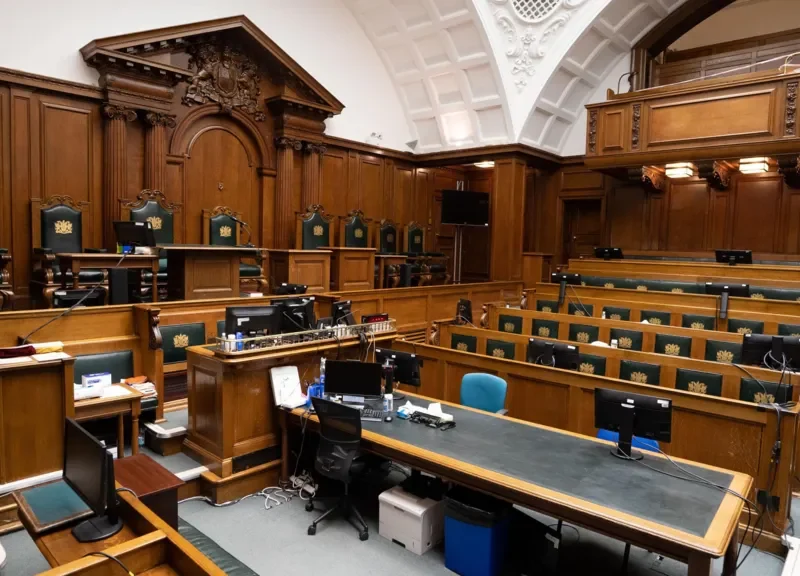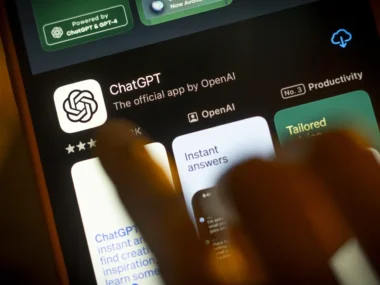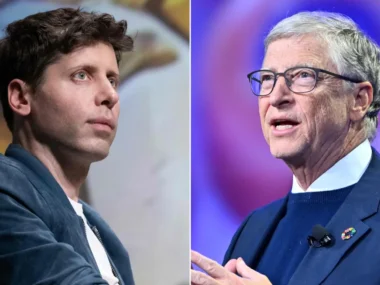We’re all familiar with the scene.
A crafty lawyer dismantles the dodgy witness’s testimony in court, thanks to endless hours of preparation. Cue tears of joy and a gavel slam (a staple of American courtrooms). The story wraps up with a hopeful message about justice making the world a better place.
Reality, however, often tells a different story.
Every day, countless individuals lose legal battles simply because they lack the resources to stand up against wealthier opponents.
Enter artificial intelligence, the transformative force of recent years, offering a new path to justice and fairness.
AI is reshaping the legal landscape, from drafting contracts to analyzing vast amounts of evidence in complex cases. This isn’t confined to elite global law firms; the revolution is quietly reaching grassroots initiatives like the Westway Trust’s Cost of Living Crisis Clinic in London.
This clinic supports one of England’s most disadvantaged communities, guiding residents through challenges like benefits appeals and landlord disputes. AI is empowering efforts to level the playing field.

The Westway Trust team is now leveraging AI tools to assist in providing advice to clients.
One client shared with the BBC how she became homeless after her landlord canceled her tenancy.
“I’m a professional person – this isn’t something I’m used to,” she explains. “It’s distressing, destabilizing, and being homeless, especially at my age, is very difficult.”
Legal aid exists for society’s poorest, but it’s means-tested and highly restricted, leading many to give up on their fight against what they know is an injustice.
So, how does artificial intelligence fit into this?
Going to court can be financially overwhelming. The goal is to find a resolution long before reaching that point, which requires expert advice.
Adam Samji, a paralegal adviser at the Westway Trust, helps clients prepare their cases by researching whether they have a strong argument against issues like rogue landlords or denied benefits.
Benefit eligibility assessments can span up to 60 pages, and each case requires detailed analysis of the client’s personal situation.
To streamline this, the Westway Trust is using AI tools to quickly extract key facts and legal points from these complex documents.
“We spend a couple of minutes redacting personal information,” says Samji. “We then upload the document into an AI model, which returns the critical information in 10 to 15 minutes.”
“This process saves us hours of manual work, allowing us, as paralegal volunteers, to focus on providing more efficient support for our clients.”
A Transformation in Progress.
This marks a significant shift. AI is starting to address what many consider a fairness gap in the justice system.
Sir Geoffrey Vos, the Master of the Rolls and head of civil justice in England and Wales, is guiding the judiciary’s exploration of AI’s potential. He has also authored the UK’s first guidelines for using AI in court.
“When people can’t resolve their claims, it leads to substantial economic losses,” says Sir Geoffrey.
“They become concerned about the issue, which affects their productivity at work. We in the justice system are eager to find ways to resolve problems more quickly and at lower cost.
“Over time, artificial intelligence will be one of the tools to help achieve this.”

Sir Geoffrey Vos has taken the lead in providing guidance on the use of AI in the courts.
How far could this AI revolution go?
Stephen Dowling, a barrister and founder of Trialview, is part of a growing group of companies vying for a share of the legal AI market, which Gartner predicts will see explosive growth in the next two years.
His tool analyzes witness transcripts in real-time, cross-referencing them with other case evidence. If it detects inconsistencies or errors, it flags them—traditionally a task for the barrister.
However, for every lead barrister in complex cases, such as commercial fraud, there is often a large support team behind the scenes.
“The technologies we’re developing will enable one or two lawyers to do the work of 10 or 20,” says Mr. Dowling.
“This will drastically improve access to justice and significantly lower legal costs.
“Ultimately, human judges are needed to listen and emotionally connect with the case, but AI can greatly assist and enhance this process.”

AI software is being developed to analyze testimony in cases, using data from training exercises with fictional witnesses.
The Human Element.
The human factor is central to the challenges the legal field is grappling with, as the potential risks are clear.
In 2023, a New York court fined lawyers for submitting false arguments based on prompts they had entered into ChatGPT.
The EU has recently introduced regulations to ensure AI accuracy, meaning its output must be verified by real people. This is a practical concern that the Westway Trust’s team is acutely aware of.
“Currently, about one in 30 cases is inaccurate,” says John Mahoney, a lawyer at the organization. “So, we have to check all the AI-generated work related to legal opinions.”
Has this human oversight been incorporated into Sir Geoffrey’s guidelines?
“Ultimately, the rule of law demands that individuals have access to an independent judge to decide their case,” says Sir Geoffrey. “If a technological tool is being used, the parties involved must be aware of it.”
“Judges have been assisted by technology for years. You’re referring to Robo-judges, but I believe we’re still far from that,” he adds.
His guidance emphasizes that not only must lawyers be accountable for the evidence they present, but judges must also be vigilant against biased results from AI tools trained on incomplete data.
When we tested ChatGPT with legal queries, it provided straightforward advice on issues like exiting a contract and resolving a legal dispute over kitchen pans with an ex-partner.
However, it refused to advise our fictional bank robber on how to avoid charges.

While it may have been amusing, Sir Geoffrey cautions against the public relying on generic AI tools that haven’t been trained on professional legal databases.
“It won’t differentiate between English law, Australian law, Singapore law, and likely US law,” he warns.
However, he is optimistic: “I’m very confident that technology will continue to advance.”
“The rule of law relies on delivering outcomes through an independent judiciary. It’s challenging for the small number of judges in this country to serve 60 million people without effectively using technological tools.”











